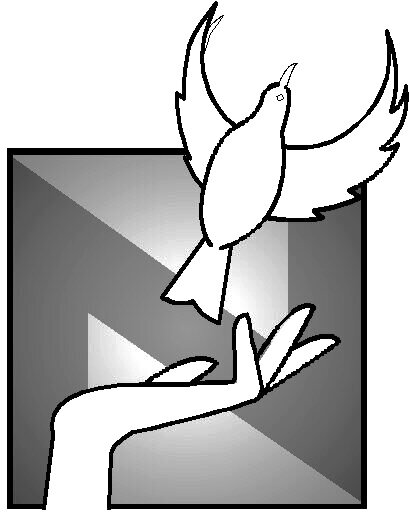The Selfish Act of Forgiveness
Often when we think of forgiveness we think of letting someone, “getting away” with something or, “getting off Scott-free”. Forgiveness is not about ignoring the fact we were hurt. It is not about setting yourself up to get hurt again. Forgiveness is not reconciliation or changing your mind about what is best for you. Forgiveness is not even something we do to enhance the life of another. It is, in one sense, a very selfish act.
A wise man once said, “Resentment is a poison one takes hoping to harm another.”
If we really look at what the lack of forgiveness does to us, we notice the emotional internal pain we inflict on ourselves. Long-held resentment can lead to physical symptoms as well; muscle tension, migraines, high blood pressure, poor concentration, sleep and appetite disturbances, and a suppressed immune system, to name a few.
Another important reason to learn to forgive, is as a model for children. Children do as we do, not as we say. If you can’t forgive for yourself and your own serenity, then forgiving as a life-lesson for your children may be the reason you need. When children see us do things that are extremely difficult, it makes an impression. Children then believe that they also are able to overcome difficult emotional situations and find the best possible solution for their own peace of mind. Most of the movies and games children are exposed to glorify retaliation and holding grudges. Your real-life modeling can have a great impact on their own ability to forgive and not carry insults and betrayals throughout life.
Forgiving is not endorsing what the offender did, or pretending that consequences aren’t deserved. But in forgiving we place the quality and serenity of our own life above what may be warranted for another. It is difficult to put down resentment. It is not in our nature to accept when things are not “fair”. Sometimes we fear we will be placing ourselves in vulnerability again if we forgive and try to forget.
Empowering questions we need to ask ourselves are; “Am I willing to give away more of my life to the person who offended me? Do they really deserve all this energy and attention? Do I choose to give them more of my thoughts, energy, passion and focus? What am I taking away from those I love by holding on to this grudge? Who am I really ‘making pay’ for my anger?”
Hate attaches us to the object of our focus. In one way, resentment is as bonding of an emotion as love. We become emotionally connected to the despised object when we dwell on rage and thoughts of retaliation. The intensity of focus and connection is similar to when we dwell on all the adorable qualities of someone we love. Resentment may be an uncomfortable feeling but it is impossible to completely disconnect emotionally from some one whom you hate and despise. Forgiveness is the knife that can sever that attachment and free up passionate energy to go into your dreams, goals, children, new relationship, new career, etc.
We choose to forgive. No one earns forgiveness. No one “deserves” forgiveness, because we can’t turn back time and have the offense (or offenses) not take place. Forgiveness is a decision we make to enhance the quality of our own life.
Forgiveness is not moving our boundaries and allowing the offender to continue to hurt us. We are still responsible to respectfully, assertively and with dignity set our boundaries and care for our emotional and physical safety.
For instance, if you have been in a physically abusive relationship and your partner refuses to get treatment or work on anger management skills, forgiveness means “releasing from debt,” not moving back in or taking the restraining order off. It does mean not dwelling on what you are “owed”, or bringing up how horribly you were treated every opportunity that arises. It means standing outside a victim perspective and asking yourself what things you admire in yourself that kept you alive (caring for children, maintaining the house or a job, establishing friendships, etc). It means giving yourself credit for who you have become for having gone through this experience. It means first forgiving yourself for being in the situation. Then, after you have been kind to yourself for awhile, you will then have the compassion to begin forgiving others.
Forgiveness is a process, is it not an event. In Clarissa Estes’ book, “Women Who Run With the Wolves”, she describes four phases of forgiving.
The first is “to forgo—to leave it alone”; this is to take a break from thinking about the other person for awhile. This allows us to gather strength in other areas of life and keeps us from becoming exhausted and immobilized.
A good way to do this is when thoughts of resentment come to mind say, “next”, and refuse to dwell on the anger and bitterness. Acknowledge the thought and let it pass on through your mind without “feeding” it.
The second is “to forbear—to abstain from punishing”. This is to restrain ourselves from punitive mutterings, gossip or acting in hostile ways. It is to practice the generosity of refraining from retaliation.
When we begin this phase we may need to stop ourselves in mid-sentence, or retract an absolute “no” that we just gave in retaliation for our emotional pain. It is not easy to stop gossiping, whining and “making them pay”. Give yourself credit when you notice yourself holding back from participating in these behaviors.
The third is “ to forget—to avert from memory, to refuse to dwell”. This is not to have a blank memory, but it is to have the person and events move to the background rather than stay in the foreground of your mind. It is to consciously distract yourself when you start ruminating about the person.
And the fourth is “ to forgive—to abandon the debt.” Forgiveness is not surrender. It is a conscious decision to stop harboring resentment, and giving up your resolve to retaliate.
To write off the debt takes generosity of spirit. It takes a great deal of self-love and knowing that you are whole and complete without ever having things be “fair,” in regards to the one who offended you. To forgive the debt means you are not diminished by the actions of the other. You are powerful and lovable without the repayment of this debt.
A final stage is to give up the right to ever hold the betrayal over the other’s head. Giving up the right to ever bring up the subject again. It means you choose to never use it as a weapon again. This completely frees you from the hold of grudges and resentment.
The highest stage of forgiveness, and one that is not always available, is to give compassionate assistance to the person who betrayed you. This doesn’t mean placing yourself in physical or emotional danger. Nor does it mean to force yourself on another person, or to give past your point of resentment. What it does mean, is that given an opportunity to provide help, you do so without judgement and with mercy and kindness, remembering the strong centered person you have become.
Ways to start forgiving include, “putting the resentment down for a time”. This could be for an hour, a day or a week. But give your mind some time off so you have time to build another identity and have other memories to draw from. When we live in rage and resentment it is difficult to attract kind and loving people to us. Usually who will find us are other angry bitter people, “misery loves company.”
As you begin to forgive remember that on no day did you ever wake up and think, “How can I really mess up my life today?” When you understand this has always been true for you, you will then begin to realize it is also true for all those in your life. Each day we make the best choices we can with the options we see available to us. Sometimes fear, self-doubt, habits, addictions and ignorance narrow our view of what is available.
Forgiveness is an art. It is something we practice daily, from forgiving the driver that cut in front of us, to the injustices inflicted on us by well-meaning but uniformed parents. Making a commitment to ourselves to practice forgiveness, is one of the most powerful ways to bring peace and tranquility into our lives. You can begin sleeping better, having a normal appetite, laughing more, creating spontaneity, and attracting fun-loving people into your life today. All you need to do is take time daily to remind yourself of your commitment to forgiveness.
You can do this by journaling, writing letters you never send, meditating, praying, walking in nature, participating in group support, talking with a friend, reading books or listening to inspirational tapes. Finding ways to rejuvenate spiritually will also help remind you there is a bigger order to the world, you are not alone, and you are important, safe and protected. Even if you have never considered yourself a forgiving person you can begin changing your self-definition today.
Remember, the love and forgiveness you put out into the world will come back to you ten fold.
© 2005 Lois V. Nightingale, Ph.D. psychologist 9503. Dr. Nightingale is the director of the Nightingale Center in Yorba Linda, Calif. She is a Clinical Psychologist and Marriage, Family and Child Therapist. www.nightingalecenter.com (714) 993-5343
Exercise letter (not to send!)
Dear ____________________________,
If only:
__________________________________________________________________________
__________________________________________________________________________
__________________________________________________________________________
I wish you had:
__________________________________________________________________________
__________________________________________________________________________
__________________________________________________________________________
Things I wanted to tell you but didn’t:
1) __________________________________________________________________________
__________________________________________________________________________
__________________________________________________________________________
Ways you betrayed me include:
__________________________________________________________________________
__________________________________________________________________________
__________________________________________________________________________
I am angry at you because:
__________________________________________________________________________
__________________________________________________________________________
__________________________________________________________________________
I have sadness about:
__________________________________________________________________________
__________________________________________________________________________
__________________________________________________________________________
I am grateful to you for:
__________________________________________________________________________
__________________________________________________________________________
__________________________________________________________________________
Things my resentment has taken from me:
__________________________________________________________________________
__________________________________________________________________________
__________________________________________________________________________
Things I wish for you:
__________________________________________________________________________
__________________________________________________________________________
__________________________________________________________________________
Gifts I am incorporating into my life from my relationship with you:
__________________________________________________________________________
__________________________________________________________________________
__________________________________________________________________________
____________________________________,
___________________________________
© 2004 Lois V. Nightingale, Ph.D. Dr. Nightingale, psychologist psy9503, is the director of the Nightingale Center in Yorba Linda, Calif. (714) 993-5343, www.NightingaleCenter.com
Ways to Express Anger for Children
__ Talk to someone __ Run __ Draw pictures
__ Write stories __ Dance __ Hit clay
__ Jump rope __ Cry __ Tell a story that expresses the feeling
__ Punch a punching bag __ Exercise __ Jump on a trampoline
__ Shoot baskets __ Listen to music __ Yell into a pillow
__ Hit a pillow __ Jump __ Play video games
__ Go for a hike __ Paint __ Hit a tether ball
__ Say really angry words alone with your door closed __ Walk the dog
__ Throw a ball __ Play a musical instrument __ Take pictures
__ Call a friend __ Have someone hold you __ draw
__ Write an angry feeling on a rock and throw it into a lake, river or ocean.
__ Write down angry feelings and then stomp on the paper or poke holes in it.
__ Make a play list of songs that express how they feel
__ Make an “altered book” of collages
__ Make a video of how you feel
__ Start a blog
Dr. Lois Nightingale, Psychologist PSY9503 714-993-5343



